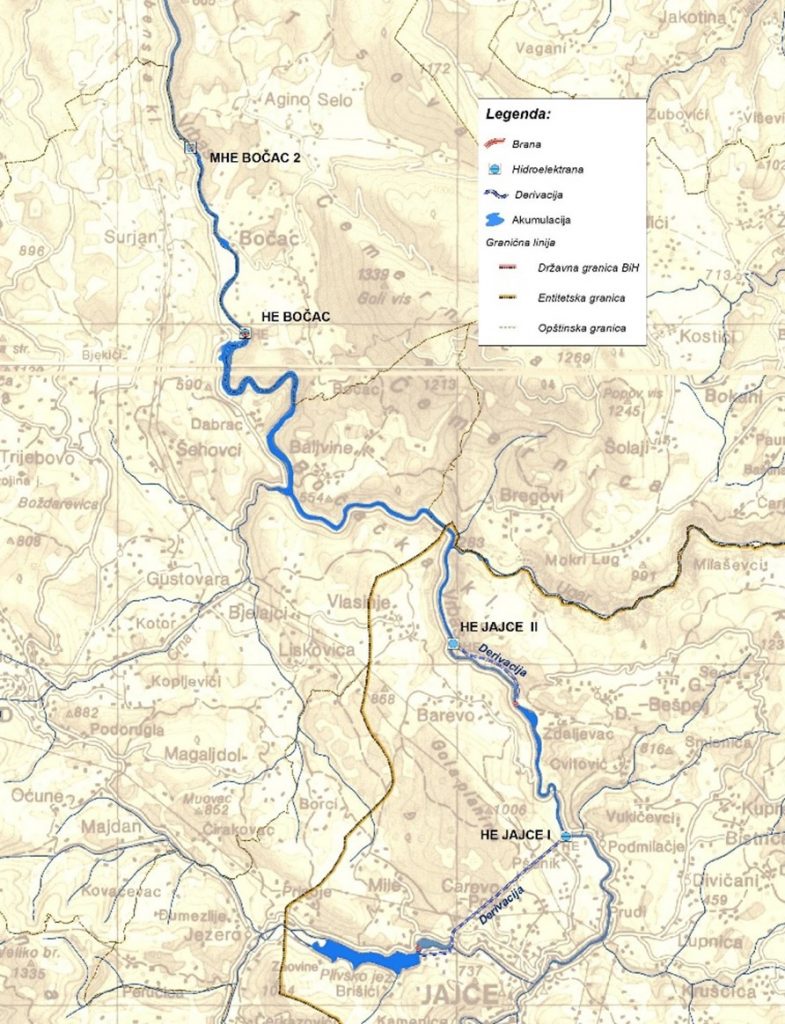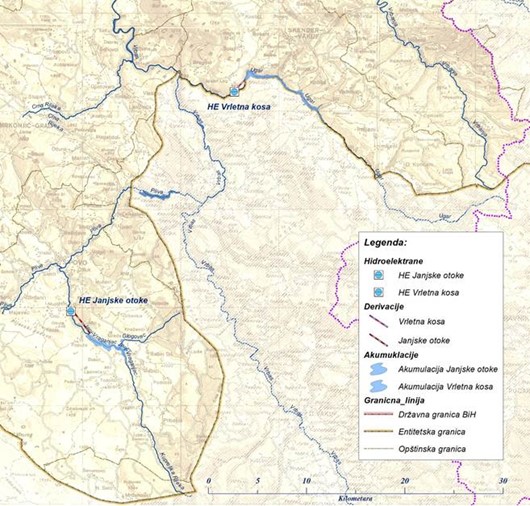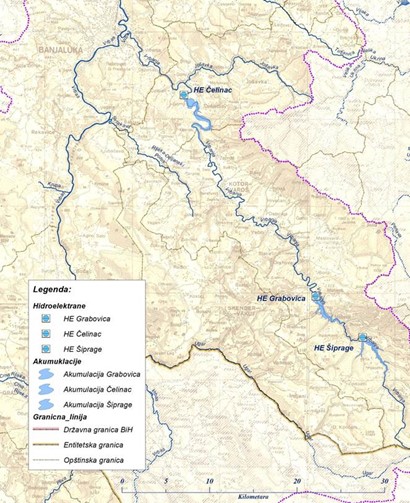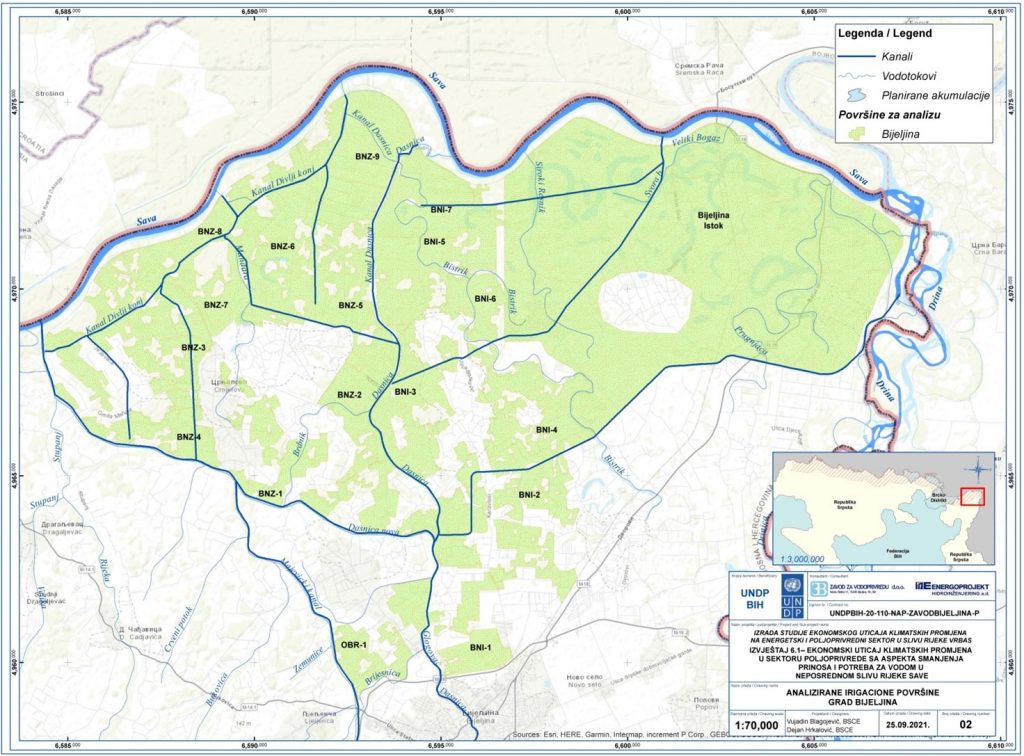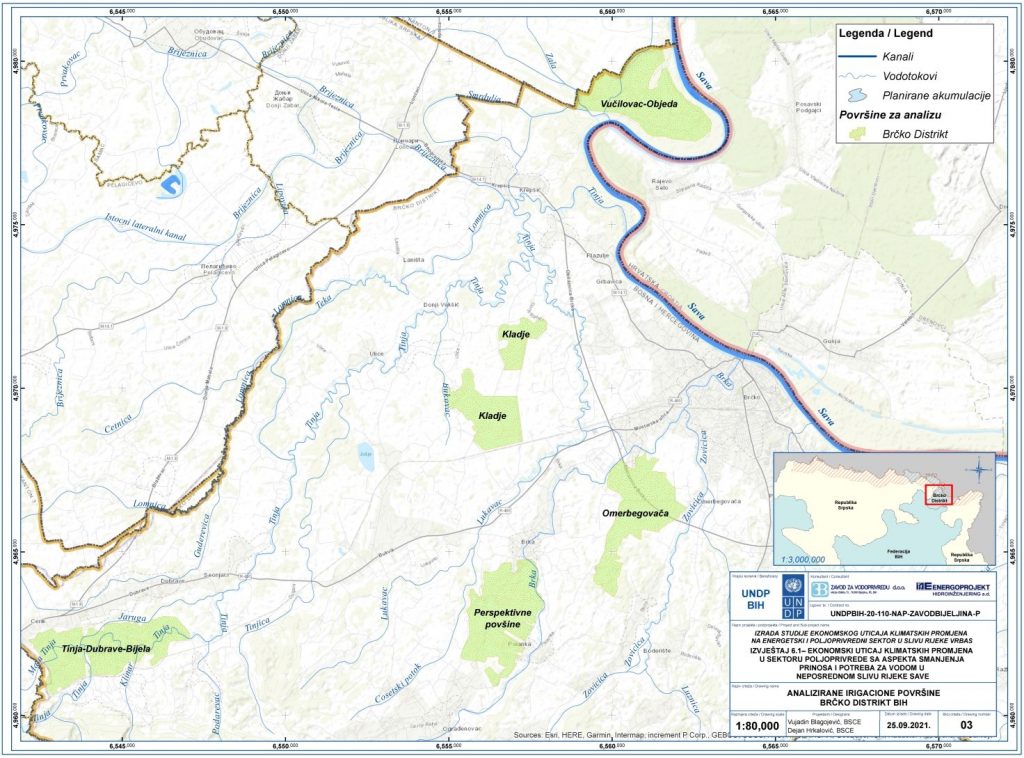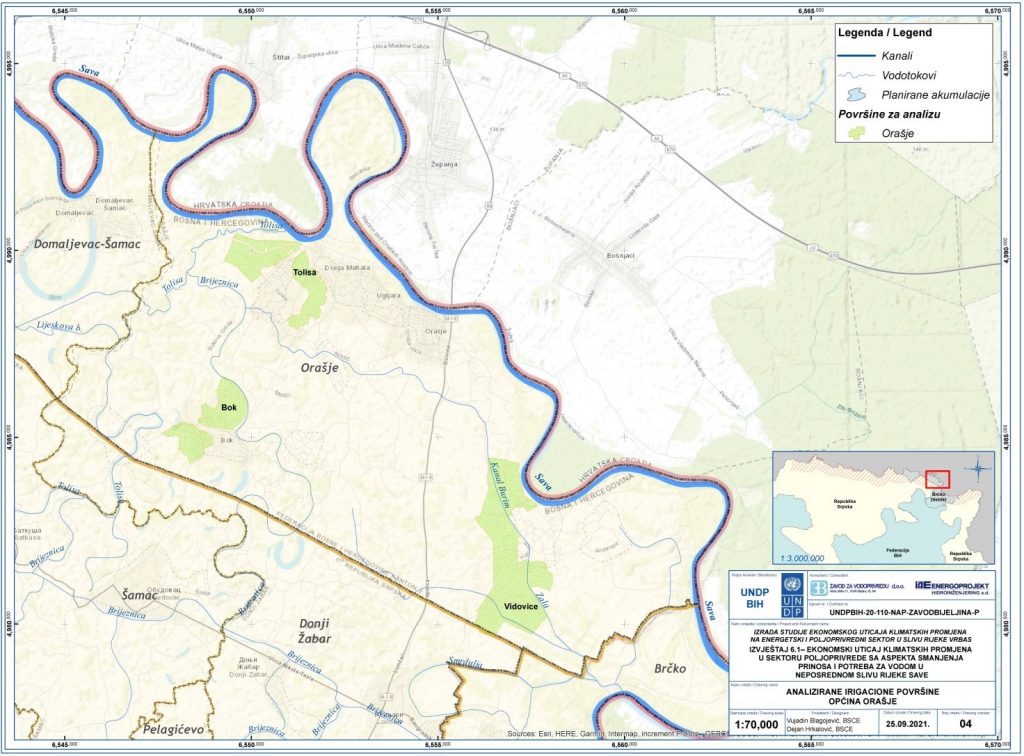Study on Economic Impacts of Climate Changes on Energetic and Agricultural Sectors in Vrbas River Basin
Investor: United Nations Development Programme Bosnia and Herzegovina
Implementation period: July 2020- September 2021
„Study on economic impacts of climate changes to energetic and agricultural sectors in Vrbas river basin“ consists of seven particular reports pursuant to provisions defined by the Contract, Annexes and Terms of Reference.
Reports are submitted and accepted by Investor in accordance with the Terms of Reference and Work Programme:
I Report Basis of hydrological analyses - submitted on 31st of August 2020;
II Report Analyses of climate change impacts to changes of hydrological regime- submitted on 3rd of October 2020;
III Report Analyses of climate change impacts to the production of electricity - present status- submitted on 30th of November 2020;
IV Report Analyses of climate change impacts to the production of electricity - final status – submitted on 31st of January 2021;
V Report Economic analyses for present and final status with climate change effects- - submitted on 28th of February 2021;
VI Report Economic impacts of climate changes in the agricultural sector from the aspect of reduced income and water requirements (Vrbas river basin) – submitted on 30th of April 2021;
Аnnеx No.1
VI.1 Report on Economic impacts of climate changes in the agricultural sector from the aspect of reduced crop yield and water requirements in Sava river basin – submitted on September 2021;
VII Report Final Report – submitted on 25th of September 2021
Key target of development of the Study on economic impacts of the climate changes to the energy and agriculture sector in Vrbas river basin is analysing those impacts to existing status of hydropower system in this basin and its efficiency, respecting the climate change impacts. Beside the existing status analyses, as one of the targets is analyses of planned status of upgrading the Vrbas HPP (Janjske Otoke HPP, Vrletna Kosa HPP, Celinac HPP, Šiprage HPP, Grbavica HPP), i.e. analyses of economic impacts of climate changes to the final level of construction – planned status.
According to the Terms of Reference for construction of the Study on economic impacts of climate changes to the hydro power sector in Republika Srpska – multipurpose system on Vrbas HPP following key tasks were processed:
- Basic hydrological analyses,
- Additional hydrological analyses of climate changes impacts,
- Analyses of climate changes impacts to the electricity production,
- Economic analyses for existing and foreseen status of multipurpose hydro power plants with climate changes impacts and
- Economic analyses of climate changes in agricultural sector from the aspect of reduced crop yield and water requirements.
Analyses of economic impacts to hydro-power sector was performed for scenario of existing objects and planned scenario for new, planned, hydro-power capacities, since it is important development and actuating mechanism for the entire river basin.
Due to great importance and dominant impacts, climate changes analyses and economic frameworks of those impacts are expanded to agricultural sector in Vrbas river basin.
Agricultural sector in Bosnia and Herzegovina is very significant, considering the status of development and requirements regarding sustainable development of this sector it is necessary to review impacts of climate changes. Therefore, timely analyses of impacts of climate changes to agricultural sector are very useful since contributing to more precise forecasting of relatively reduced crop yield and estimation of damages caused by drought. Amongst other things, this knowledge contributes to water savings on large irrigation systems, when deficit in water occurs. Also, respecting available mechanisms of struggle with climate changes it is clear that irrigation has to go through the process of expansion since contributing to survival and development of agricultural production, product quality, selection of crop cultures but also productivity per unit of area. Vrbas river basin is excellent example for that, where irrigation and land organisation in general should lead to radical changes in agricultural production.
After analysing the Vrbas river basin, based on annex to the Contract, analyses of resource capacities and framework of climate change impacts to the agricultural sector has been developed for the direct Sava river basin. Considering that this area is significantly less investigated compared to Vrbas river basin, due to resource capacities and further development of economy it is very important for Bosnia and Herzegovina, Entities and Brcko district. In section of analyses for the area of direct Sava river basin, great effort was invested on collecting, updating and systematization of data and maps as well as additional analyses.
Analyses from the aspect of agricultural and water management sectors have been implemented and general and strategic indicators of existing status and climate changes are presented. It was concluded that situation is serious as well as necessity for planned and organized approach in strengthening water management capacities but also development of irrigation system to the necessary level which guarantee sustainable development of agriculture on significant areas. Also it was concluded that application of scientific approaches is necessary for agricultural section, regarding strengthening this sector on all bases, including methods and agricultural adaptation measures to climate changes.
Although represents special project unit, project area of perspective agricultural areas of Direct Sava river basin, developed in Report VI.1 and it is part of the Study, since the basic contract refers to Vrbas river basin.
According to its content, Report VI.1 is adjusted to necessary organization and use on various levels (BiH, entities, Brcko district BiH and local communities) considering the implemented investigation terrain works and presented requirements of various levels, including those received from the local communities.
